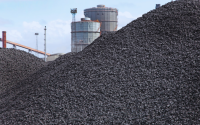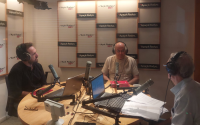8 May 2007PlanetArkAlister Doyle
A warmer climate disrupts the biological clocks of migratory species including bats, dolphins, antelopes or turtles, said Lahcen el Kabiri, deputy head of the UN's Bonn-based Convention on Migratory Species.
"They are the most visible warning signs -- indicators signalling the dramatic changes to our ecosystems caused in part by climate change," he told delegates on the opening day of a May 7-18 UN meeting searching for new ways to offset warming.
Many creatures are mistiming their migrations, or failing to bother as changes between seasons become less clear. The shifts make them vulnerable to heatwaves, droughts or cold snaps.
Among birds, for instance, cranes are starting to spend the winter in Germany rather than fly south to Spain or Portugal. "A harsh winter could decimate the population," he said.
Migratory species are particularly vulnerable because they need separate breeding, wintering and stop-over sites. Changes to any one of the habitats can put them at risk.
Global warming, blamed by almost all experts on a build-up of gases from burning fossil fuels, adds stresses for migratory species such as pollution, overfishing or destruction of habitats on land for farming, roads or towns.
FISH, PLANKTON
"Climate change affects all migratory species," El Kabiri, a Moroccan, told Reuters. He said that whales were sometimes in the wrong place to feed on fish and plankton which were thriving closer to the poles because of warmer oceans.
In the Arctic, forests could take over from tundra, complicating life for many birds that nest on the ground and have to fly from Africa to find sites with few predators. Warmer weather could bring predators north.
Rises in sea levels could swamp habitats for many shore birds. El Kabiri said governments should cooperate more to create and protect international migration corridors.
Birds are sometimes hatching early in a warmer climate, but sometimes insect food can flourish even earlier. Pied flycatcher birds in Europe, for instance, have suffered from a lack of caterpillars for their chicks.
The Convention on Migratory Species and the UN's African Eurasian Migratory Waterbirds Agreement said they will highlight the problems for birds and climate change around the world with a series of events on May 12-13.






